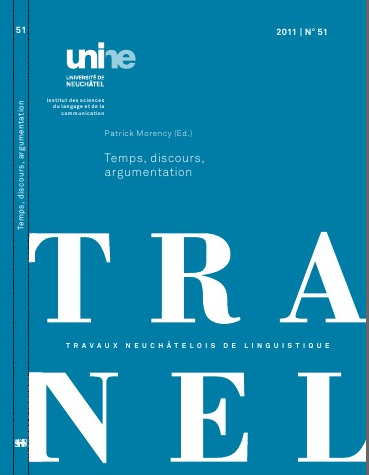Remarques sur l'usage futur du passé composé
DOI :
https://doi.org/10.26034/tranel.2011.2770Résumé
This paper attempts to identify the pragmatic constraints that license the use of the present perfect with a future time adverb in French, such as J'ai bientôt fini (lit. 'I have soon finished') or Dans une heure, le président est sorti de sa réunion (lit. 'In an hour, the president has exited from his meeting'). Previous studies have argued that only aspectual verbs are available in such constructions, and that a pragmatic notion of planification must be accessible to the interlocutors, hence utterances like Demain il a plu ('Tomorrow it has rained') or Demain Pierre a été heureux ('Tomorrow Pierre has been happy') are odd. The paper suggests that some of the concerned utterances are fine, despite their lack of agentivity, so long as that doesn't merely presuppose planification but rather serves to communicate that a particular attitude, or course of actions has to be adopted in the present from the perspective of the/a future state of affairs.


